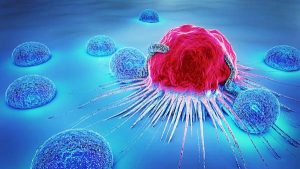Is Cancer Genetic Or Epigenetic?


The relationship between cancer and epigenetics is one of the most critical areas of cancer research today. It is the basis of many treatments. For instance, the treatment of cancer using DNA methylation inhibitors (DMIs) is believed to be beneficial for patients with high LINE-1 methylation levels, which is a factor involved in the development of cancer. Is Cancer Genetic Or Epigenetic?
LINE-1 hypomethylation
LINE-1 hypomethylation is an epigenetic abnormality that is associated with cancer. However, the effects of LINE-1 hypomethylation on the risk of developing cancer have not been investigated extensively. Despite this, several studies have shown that LINE-1 hypomethylation is related to the setting of a range of cancers.
To understand the relationship between LINE-1 hypomethylation and malignant tumour behaviours, a recent study investigated the correlations between LINE-1 methylation levels and a range of malignant tumour behaviours in colorectal cancer. The study included data from a database of 1356 colorectal cancer patients.
LINE-1 methylation levels were assessed using pyrosequencing of resected tumour specimens. Overall, LINE-1 methylation levels were 63.6. Amongst stage IB and IIA lung adenocarcinoma patients, LINE-1 methylation had no predictive value. Compared with a control group, LINE-1 hypomethylation was associated with an increase in the number of TP53 mutation-positive tumours. Moreover, LINE-1 hypomethylation was associated in the intermediate-onset group with an increased maximum standardized uptake value in positron-emission tomography.
DNA methylation patterns are maintained in vivo
DNA methylation is one of the primary forms of DNA modification in mammalian genomes. Conventional methods can analyze it. However, the sensitivity and specificity of these methods are often limited.
Recent technological advances have allowed the study of DNA methylation profiles at a large scale. This information can be used to detect and monitor cancer on time. Detection of DNA methylation-related changes is possible in cell-free DNA, which helps determine tumour tissue’s origin and identify treatment resistance.
DNA methylation can be mapped using bisulfite genomic sequencing. The methylation profile of the target DNA sequences can then be analyzed by ChIP-BA assays, which enable the identification of specific CpG sites and the binding ability of transcription factors. This technique can obtain detailed information on 5-methylcytosine distribution.
Detection of epigenetic changes, such as methylation, is considered an early genomic aberration during carcinogenesis. These changes are often accompanied by hypermethylation of CpG islands.
MSI-high tumours are associated with a decreased likelihood of regional or distant metastasis.
A majority of colorectal cancers are low in microsatellite instability (MSI). Some are classified as high MSI. High MSI is associated with a lower likelihood of regional or distant metastasis. However, the exact relationship between MSI and survival needs to be clarified. The pathological features of MSI-high tumours are essential for guiding the prognosis of colorectal cancer patients.
Mucinous-rich tumours are strongly associated with MSI. These tumours tend to have an aggressive clinical course. They are also more likely to metastasize to the liver, lungs, and lungs.
Several studies have demonstrated that MSI-associated tumours have a poorer prognosis than those with less MSI. Although this is not surprising, the underlying biological mechanism must be clarified. It is believed that MSI is an epigenetic modifier of tumour progression.
To study the role of MSI in CRC, a panel of 11 microsatellites was analyzed. Each gel was scored independently by two experienced study personnel. Almost all MSI-L cancers showed instability at a single microsatellite.
Treatments target epigenetic changes.
Several clinical trials are underway to assess epigenetic drugs and immunotherapy against several types of cancer. The results of these studies have shown promising benefits in managing cancer.
Epigenetic drugs target chromatin-modifying machinery. These enzymes modify DNA methylation, histone tails, and noncoding RNAs. They affect the expression of gene transcription and may restore a dysregulated cell to its healthy state.
In cancer, genetic alterations in epigenetic enzymes contribute to aberrant histone modifications. As a result, these enzymes are involved in the initiation and progression of carcinogenesis.
In addition, epigenetic changes can influence the onset and progress of several diseases. Therefore, treatments that target these changes help treat a variety of disorders.
A class of epigenetic anticancer drugs includes BET inhibitors. These compounds were discovered in the early 1990s and have since been used to treat various haematological malignancies. However, they have also been evaluated in the treatment of solid tumours.
